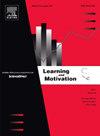Matricaria chamomilla L. is a well-known plant, which has decreased morphine dependence and withdrawal. The aim of the present study was to investigate the effects of the hydroalcoholic extract of Matricaria chamomile and the role of serotonergic receptor on the rewarding effects of morphine using a conditioned place preference (CPP) paradigm in rats. In this study, adult male Wistar rats received intraperitoneal injection of Matricaria chamomile (30 mg/kg) to assess of the acquisition and expression of the morphine-induced CPP and also received intraperitoneal injection of ketanserin (1 mg/kg) to assess of the extinction and reinstatement of CPP following Matricaria chamomile and as well as measurement of CSF serotonin levels. The results indicated that the Matricaria chamomile extract significantly attenuated the acquisition and expression of morphine reward memory in CPP paradigm. While the Matricaria chamomile had no effect on the extinction of reward memory, despite a significant increase in the CSF serotonin levels in the rats receiving ketanserin/chamomile. Also, Matricaria chamomile had no effect on the reinstatement and the CSF serotonin levels, while ketanserin reduced the CSF serotonin level and increased the CPP score in the reinstatement of reward memory for morphine. We conclude that the Matricaria chamomile attenuated the acquisition and expression of morphine reward memory, while could not maintain the extinguished memory and had no effect on the reinstatement of reward memory. Also, the blocking of serotonin receptor reduced the CSF serotonin level and increased the CPP score in both extinction and reinstatement phases. Therefore, Matricaria chamomile as a useful adjunctive therapeutic strategy may exert a protective effect against opiate-induced reward and incentive motivation during drug craving in opiate-addicted individuals.


